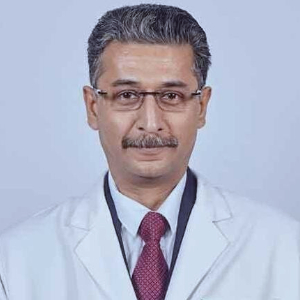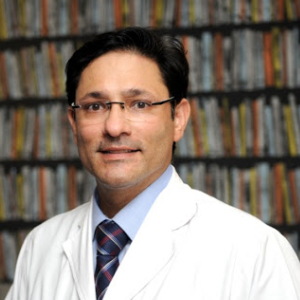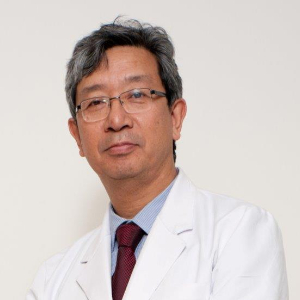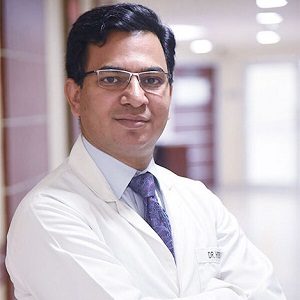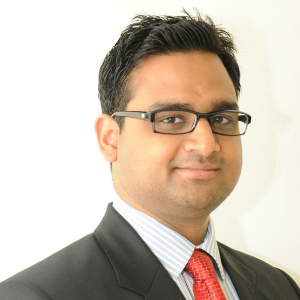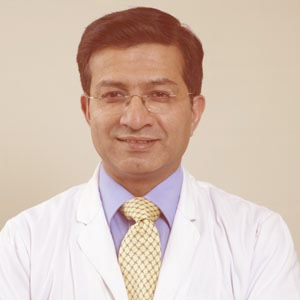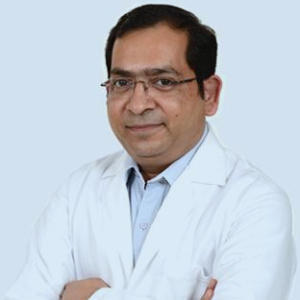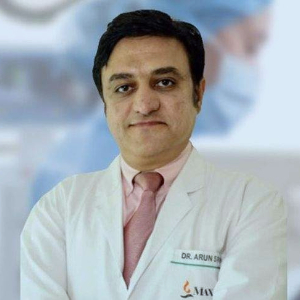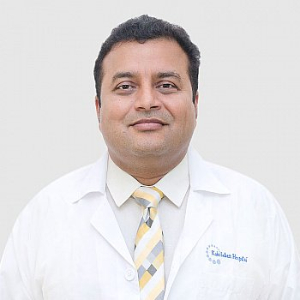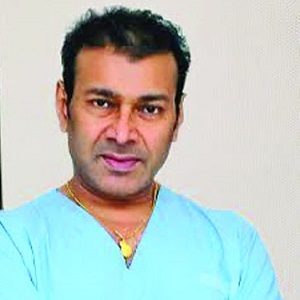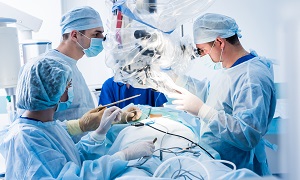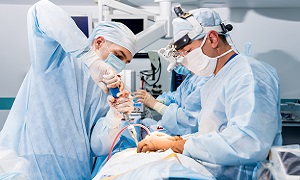Best Spinal Cord Stimulator Implant Doctors in India
- Neurosurgeon, Gurugram, India
- Over 22 years’ experience
- Fortis Memorial Research Institute
Profile Highlights:
- Dr. Sandeep Vaishya is a renowned Neurosurgeon in India, with over 22 years of proficient experience in the field of advanced neurosurgery.
- He has closely worked with some of the top-notch institutes and hospitals in India.
- Dr. Vaishya is regarded as one of the top surgeons of Gamma Knife Surgery in South Africa and is also considered a renowned surgeon for brachial plexus injuries.
- Additionally, Dr. Vaishya specializes in minimally invasive and image-guided neurosurgery, intracranial tumor surgery (including skull base tumors), functional neurosurgery, spinal surgery, and brachial plexus & peripheral nerve surgery.
- Neurosurgeon and Spine Surgeon, Gurugram, India
- Over 15 years’ experience
- Artemis Hospital, Gurgaon
Profile Highlights:
- Dr. S K Rajan is a renowned Neurosurgeon in Gurugram who specializes in open as well as minimally invasive spinal surgeries and has performed over 3000 complex spinal surgeries for diseases and disorders.
- Dr. S K Rajan’s expertise lies in Craniovertebral Junction and Lumbosacral Junction surgeries and is also an expert in spinal fracture surgeries, slipped discs, canal stenosis, and surgery for spinal tumors and spinal tuberculosis.
- Top Neurosurgeon | Fortis Memorial Research Institute | Gurugram, India
- 32+ years’ experience
- Fortis Memorial Research Institute
Profile Highlights:
- Dr. Rana Patir is one of the most experienced and highly qualified Neurosurgeons in India.
- He holds an extensive experience of 32+ years as a neurosurgeon and has performed more than 10,000 neurosurgical procedures till date.
- Dr. Patir is an expert in all kinds of neuro and spine surgeries with a specialization in minimally invasive brain and spine surgery, Epilepsy surgery, pediatric neurosurgery, and neurovascular surgery.
- Orthopedic Surgeon and Spine Surgeon, Gurugram, India
- Over 15 years’ experience
- Artemis Hospital, Gurgaon
Profile Highlights:
- Dr. Hitesh Garg is a leading orthopedic and spine surgeon, currently serving as the Head of Ortho-Spine Surgery at Artemis Hospitals in Gurugram, India.
- With over 15 years of extensive experience, Dr. Garg has garnered a reputation for excellence in the field of spine surgery, having performed more than 5,000 spine surgeries, including over 2,500 spinal fusions, 1,000 deformity correction procedures, 300 artificial disc replacements, and 500 complex surgeries addressing spinal tumors, congenital defects, and spino-pelvic fixations.
- Dr. Garg’s medical journey began at the prestigious All India Institute of Medical Sciences (AIIMS), New Delhi, where he earned his MBBS. He further honed his expertise with an MS in Orthopedics from KEM Hospital and Seth G.S. Medical College, Mumbai.
- Orthopedic Surgeon & Spine Surgeon, Gurugram, India
- Over 15 years’ experience
- Fortis Hospital Noida
Profile Highlights:
- Dr. Himanshu Tyagi is a well-known Spine surgeon with a specialization in Minimally Invasive Spine Surgeries (MISS), Knee Replacement, and Orthopedics.
- In order to ensure accurate and successful results, he uses cutting edge methods in knee and spine replacement operations, including minimally invasive treatments and navigation-assisted surgery.
- He holds a super specialization in spine surgery from Sir Ganga Ram Hospital, New Delhi, and is an expert in performing endoscopic spinal procedures and complex spinal surgeries.
- He has over 15 years of experience in the field and is trained to perform all kinds of reconstructive and corrective spinal surgeries.
- Top Neurosurgeon | Max Hospital, Saket, New Delhi, India
- 20+ Years Experience
- Max Super Specialty Hospital, Saket, New Delhi
Profile Highlights:
- Dr. Bipin Walia is one of the most famous neurosurgeons who has performed over 7000 successful neurosurgeries so far.
- Dr. Bipin Walia specializes in image-guided surgery, disc replacement, and endoscopic disc surgery, including endoscopic cranial surgery. His expertise also includes brain tumor surgery and a special focus on minimally invasive surgery for spinal tumors.
- He earned his MBBS and MS (General Surgery) degree from Armed Forces Medical College, Pune, followed by which his, M.Ch(Neurosurgery) from All India Institute of Medical Sciences, New Delhi.
- Dr. Bipin Walia has over 20 years of experience with his outstanding performance earning him quite some rewards and recognition.
- Top Neurosurgeon & Spine Surgeon | BLK Hospital, New Delhi, India
- 29+ Years Experience
- BLK Super Specialty Hospital, New Delhi
Profile Highlights:
- Dr. Anil Kumar Kansal is a highly respected and accomplished neurosurgeon with over 29 years of extensive experience in the field of neurosurgery, spine surgery, and robotic surgery.
- He currently serves as the Principal Director and Head of the Department at Max Healthcare, where he leads the Neurosciences division with a focus on delivering cutting-edge care to patients with complex neurological conditions.
- He earned his MCh in Neuro Surgery from King George’s Medical College, Lucknow University, in 2001, following an MS in General Surgery from the same prestigious institution in 1997.
- Top Neurosurgeon | Max Hospital, Saket, New Delhi | India
- 20+ Years Experience
- Max Super Specialty Hospital, Saket, New Delhi
Profile Highlights:
- Dr. Arun Saroha is a renowned Neurosurgeon with extensive experience in the surgical treatment of all kinds of brain and spine disorders.
- He holds an experience of over 20 years in the field and has performed over 8000 neurosurgeries till date for different types of neuro and spinal diseases.
- Dr. Saroha is an expert in minimally invasive spine surgery, neuro-onco surgery, trauma surgery and is also among the few neurosurgeons with expertise in Pediatric neurosurgery.
- His interest lies in brain and spine disorders like degenerative spine disorder, brain tumors, disc replacements, pediatric neurosurgery surgery for stroke, brain and spine tumor surgery, brain aneurysms, spinal fusion, and decompression surgery.
- Orthopedic Surgeon and Spine Surgeon, Mumbai, India
- Over 20 years’ experience
Profile Highlights:
- Dr. Vishal Peshattiwar is a leading Spine Surgeon in Mumbai specializing in Minimally Invasive Spine Surgeries (MISS)
- He has an experience of more than 2 decades in spine surgery and holds the credit of performing over 4000 spinal surgeries to
- He is the first in India to use the MISS technique on a patient with liver failure and Tuberculosis.
- Dr. Vishal Peshattiwar’s most notable case till date was performing a Revision Spine Surgery through MISS on the oldest patient in India.
- Orthopedic & Spine Surgeon, Chennai, India
- Over 33 years’ experience
- Apollo Hospitals Greams Road
Profile Highlights:
- Dr. Sajan K Hegde is a highly regarded Spine Surgeon in India who is presently serving as a Senior Consultant Spine Surgeon at both Apollo Cancer Centre and Apollo Hospital, Greams Road in Chennai.
- With over 30 years of experience, he specializes in advanced treatments for spinal deformities, spondylolisthesis, and spinal tuberculosis.
- Dr. Hegde is a pioneer in robotic-assisted spine surgery across the Asia-Pacific and is the only surgeon in India to perform non-fusion scoliosis correction techniques.
- His expertise encompasses a wide range of spinal conditions and advanced surgical procedures like spinal fusion, discectomy, laminectomy, and vertebroplasty.
Best Spinal Cord Stimulator Implant Hospitals in India
- City: Gurugram, India
Hospital Highlights:
- One of India’s best and largest multi-specialty hospitals, Medanta was built with the aim to bring India to the highest standards of medical care. The hospital has been providing the best medical services to its patients, since its inception, with care, commitment, and compassion.
- Equipped with 1250 beds, the hospital was founded by Dr. Naresh Trehan in the year 2009 with an aim to provide the best medical care at affordable costs. The hospital is spread across 43 acres and includes 45 operation theatres and 350 beds dedicated solely to ICU. The hospital includes over 800 doctors, and more than 22 specialty departments and has a dedicated floor for individual specialty in order to offer the best services under one roof.
- The hospital is considered one of the premier institutes in India for Cardiac Care and includes staffs and members of high caliber. The hospital has 6 distinct centers of excellence.
- City: Gurugram, India
Hospital Highlights:
- Artemis Hospital, established in 2007 in Gurugram, India, is a leading multi-specialty institution known for its excellence in patient care and advanced medical technology, offering comprehensive services across specialties like Cardiology, Oncology, Neurology, Orthopedics etc.
- Renowned for its patient-focused care, Artemis Hospital combines state-of-the-art infrastructure with a team of internationally trained doctors and surgeons, ensuring the highest standards of medical treatment.
- Accredited by JCI and NABH, Artemis Hospital meets global healthcare quality and safety standards, reflecting its commitment to providing compassionate, personalized care.
- The hospital is recognized for utilizing cutting-edge diagnostic and ther*peutic techniques, ensuring patients receive accurate diagnoses and effective treatments tailored to their needs.
- City: Chennai, India
Hospital Highlights:
- The Apollo Proton Cancer Centre in Chennai is the most sought-after private cancer hospital in India. It is an integrated facility that provides cutting-edge, all inclusive cancer treatment to patients all over the globe.
- The hospital is a part of the renowned Apollo Group which has a large network of over 74 hospitals in India and across the globe. Out of the 74 hospitals, 21 of them are cancer centres. However, Apollo Proton Cancer Centre is the only cancer hospital to have JCI accreditation.
- The Centre, which was established on the principles of excellence and expertise, unites a formidable medical staff led by some of the most illustrious figures in cancer treatment.
- The hospital follows the global ASTRO Model Policy. It is the same global policy which is followed by countries like USA, UK, and Europe.
- Apollo Proton Cancer Centre is among the very few hospitals in India to receive patients from First World countries such as USA, Canada, New Zealand, Australia, Singapore, Thailand, etc.
- Apart from that, it is also the first hospital in Chennai to receive patients from several countries like Uzbekistan, Kazakhstan, Turkmenistan, Georgia, Armenia, Azerbaijan, SAARC countries (Bangladesh, Nepal, Sri Lanka, Maldives, Bhutan, Afghanistan, and Pakistan), South Africa, Turkey, Egypt, etc.
- In fact, there is a dedicated team at the Apollo Proton Cancer Centre that serves only international patients. Thus, on a monthly basis, the Centre receives patients from across 32 countries.
- Moreover, there are certain treatments in Apollo Proton Cancer Centre that are not available in any other centre. APCC addresses all types of possible cancers that are usually not covered by any other centre.
- City: New Delhi, India
Hospital Highlights:
- Over the last 33 years, the Fortis Escorts Heart Institute has set new standards in cardiac treatment with groundbreaking research. It is now known around the world as a centre of expertise for Cardiac Bypass Surgery, Interventional Cardiology, Non-invasive Cardiology, Paediatric Cardiology, and Paediatric Cardiac Surgery.
- The hospital has cutting-edge laboratories that perform a wide range of diagnostic tests in Nuclear Medicine, Radiology, Biochemistry, Haematology, Transfusion Medicine, and Microbiology.
- Fortis Escorts Heart Institute boasts a diverse group of bright and experienced doctors who are backed up by a team of highly qualified, experienced, and devoted support professionals as well as cutting-edge equipment such as the recently installed Dual CT Scan.
- Approximately 200 cardiac doctors and 1600 personnel currently collaborate to manage over 14,500 admissions and 7,200 emergency situations each year. The hospital now has a 310-bed infrastructure, as well as five cath labs and a slew of other world-class amenities.
- City: Gurugram, India
Hospital Highlights:
- Fortis Memorial Research Institute (FMRI) is a premier multi-super-specialty, quaternary care hospital, known for its exceptional international faculty, top-tier clinicians, super-sub-specialists, and specialized nurses, all supported by cutting-edge technology.
- It is the flaship hospital of Fortis Healthcare Limited, part of IHH Healthcare Berhad, a leading integrated healthcare services provider in India. As one of the country’s largest healthcare organizations, Fortis operates 28 healthcare facilities with over 4,500 operational beds (including O&M facilities) and more than 400 diagnostic centers (including joint ventures).
- Recognized as one of the top hospitals in India, FMRI serves as a leading referral center and aspires to be the ‘Mecca of Healthcare’ for India and beyond. Its 11-acre campus is a testament to its commitment to providing world-class healthcare.
- Accredited by JCI and NABH, FMRI is dedicated to maintaining the highest standards of healthcare quality and safety, ensuring that every patient receives the best possible care. The hospital’s reputation is further enhanced by its state-of-the-art facilities and innovative medical practices.
- City: New Delhi, India
Hospital Highlights:
- The Indian Spinal Injuries Center (ISIC), provides state-of-the-art facilities for the management of all types of spinal ailments.
- Staffed with internationally trained, acclaimed, and dedicated spine surgeons, the hospital provides cutting-edge medical & surgical technology. The hospital provides comprehensive management of spinal injury, back pain, spinal deformities, tumors, osteoporosis, etc.
- The hospital performs motion-preserving spine surgeries including disc replacement and dynamic fixation, and minimally invasive spine surgeries such as endoscopic disc excision.
- The orthopedic service of the hospital covers all orthopedic ailments including trauma, joint diseases & replacements, oncology, pediatric orthopedics & upper limb ailment.
- City: Faridabad
Hospital Highlights:
In the sprawling city of Faridabad, where healthcare needs are diverse and ever-evolving, one institution has consistently stood out as a beacon of excellence in the field of medicine—Marengo Asia Hospital. Established with a vision to provide world-class healthcare services to the community it serves, Marengo Asia Hospital has emerged as a trusted name synonymous with quality, compassion, and innovation in healthcare.
- City: New Delhi, India
Hospital Highlights:
- Indraprastha Apollo Hospital is a 700-bedded multispecialty hospital in the heart of the capital of India. It is a part of Apollo Hospital group, one of India’s most reputed healthcare chains. Indraprastha Apollo Hospital has been accredited by Joint Commission International, making it the first internationally accredited hospital in the country in 2005.
- There are 52 specialties in the hospital with one of the best cardiology centers in the country. The hospital is also equipped with State of the art infrastructure facilities with the largest Sleep Lab in Asia and the largest number of ICU bed facilities in India.
- The latest and highly advanced technologies that are installed in the hospital include Da Vinci Robotic Surgery System, PET-MR, PET-CT, Cobalt-based HDR, Brain Lab Navigation System, Tilting MRI, Portable CT scanner, 3 Tesla MRI, 128 Slice CT scanner, DSA Lab, Endosonography, Hyperbaric Chamber and Fibro scan.
- City: New Delhi, India
Hospital Highlights:
- One of the well-regarded providers in India committed to the highest standards of clinical excellence and patient care, Max Super Specialty Hospital is a part of Max Healthcare, which is the second-largest healthcare chain in India. Regarded as one of the most well-regarded healthcare providers in the country, Max Super Specialty Hospital is committed to the highest standards of clinical excellence as well as patient care. The hospital is also equipped with the latest technology as well as cutting-edge research. The hospital is known to deliver and ensure the highest level of patient care.
- The hospital has more than 500 beds and offers treatment for over 35 specialties. The hospital also holds the credit of having installed the first Brain Suite in Asia. This is a highly advanced Neurosurgical machine that allows MRI to be taken while surgery is ongoing.
- Other advanced and latest technologies are also installed in the hospital such as the 1.5 Tesla MRI machine, 64 Slice CT Angiography, 4D ECHO, LINAC, and 3.5T MRI machine.
- City: Kolkata, India
Hospital Highlights:
- Founded in 2017, the HCG EKO Cancer Centre is a committed, all-inclusive cancer care facility in Kolkata.
- The hospital was collaboratively established by India’s leading cancer care provider HCG (HealthCare Global Enterprises Ltd.), and EKO Diagnostic Pvt. Ltd., a top diagnostic and imaging chain in Eastern India.
- With 88 beds, the hospital provides a full spectrum of services including diagnosis, prevention, screening, second opinions, treatment, rehabilitation, follow-up, and palliative care.
- Additionally, the hospital contains a day-care chemotherapy ward, Neutropenic ward, medical ICU, pharmacy, blood bank, and an IPD wing.
- At HCG EKO Cancer Centre Kolkata, a large team of cancer experts with experience in medical oncology, surgical oncology, radiation oncology, hemato oncology, BMT, and nuclear medicine collaborate to offer a variety of treatment options under one roof.
- Furthermore, the hospital is also known for employing the most advanced radiation technology such as, the Radixact, a next-generation TomoTherapy equipment that provides greater radiation delivery precision.
Spinal Cord Stimulator
Spinal cord stimulator is an implanted device that can deliver low levels of electric signals directly into the spinal cord, which helps to relieve pain. Spinal cord stimulation is often used after nonsurgical pain treatment options fail to provide sufficient relief. Spinal cord stimulators require two procedures for testing as well as implanting the device, the trial and the implantation. It can help one to improve their overall quality of life and it also reduces the need to use any kind of pain medicines. It is typically used with other pain management treatments.
Purpose
Spinal cord stimulation is used if nonsurgical pain treatment options fail to provide enough relief. Spinal cord stimulators are used for treating or managing various types of chronic pain, which includes:
- Back pain, that continues even after surgery (failed back surgery syndrome)
- Post-surgical pain
- Heart pain (angina) untreatable by other means
- Arachnoiditis (painful inflammation of the arachnoid)
- Injuries to the spinal cord
- Peripheral vascular disease
- Nerve-related pain (which can include severe diabetic neuropathy and cancer-related neuropathy from radiation, surgery or chemotherapy)
- Complex regional pain syndrome
- Pain after an amputation
- Visceral abdominal pain and perineal pain
Spinal cord stimulation can help you improve your overall quality of life and sleep as well as reduce the need for pain medicines. It can be used along with other kinds of pain management treatments, which include medications, physical therapy, exercise and relaxation methods.
Spinal Cord Stimulator Types
Spinal cord stimulators can be of various types:
Conventional implantable pulse generator (IPG), a spinal cord stimulator which is operated by battery. During the operation, the batter is placed in the spine. When it runs out, the battery needs to be replaced with a different surgery. This device is usually a good choice for people who are experiencing pain in just one body part due to its lower electrical output.
Rechargeable IPG functions similarly to the conventional device. Its difference is that the battery can be recharged without the need for another surgery. As the energy source is rechargeable, these stimulators are able to put out more electricity. This option is better for people experiencing pain in the lower back or in one or both legs, as the signal can reach further.
Radiofrequency stimulator uses a battery located outside the body. Due to newer designs and better technology, this stimulator is used quite rarely today. It has rechargeable batteries and is similar to the rechargeable IPGs. It is a better option for people with pain in the lower back and legs due to the device’s power.
Your surgeon will be explaining how to operate the device as well as adjust the intensity of the electrical signal, which all three types of stimulators are able to support. Different stimulator settings are required for different body positions. One setting can work better for sitting and another one for walking.
In order to help you easily access the settings which are used mostly, most devices allow doctors to save two or three preset programs. Some newer devices feature several waveforms for electricity delivery, which includes high frequency, burst as well as high-density stimulation.
Procedure
The procedure for spinal cord stimulation requires two steps to test and implant the device: the trial and the implantation. It is usually performed on an outpatient basis.
Spinal Cord Stimulator Trial
The first step is considered a trial period. In this step, your surgeon will implant a temporary device which will be testing out. You will be guided by a particular kind of X-ray called fluoroscopy. Then your surgeon will carefully insert the electrodes in the epidural space of the spine. The location of your pain affects where these electrodes will be placed along the spine. Your surgeon may ask for your feedback during the procedure to position the electrodes in the most effective way.
This trial procedure usually requires just one incision in your lower back for placing the electrodes. The generator/battery will be outside your body, typically on a belt which you will be wearing around your waist.
For around a week, you will evaluate how well the device can reduce your pain. The trial can be considered a success if you experience at least a 50 percent reduction in your pain level.
However, if it is unsuccessful, the wires can be removed quite easily in the clinic without causing any damage to the spinal cord or nerves. If successful, then surgery will be scheduled to implant the device permanently.
Spinal Cord Stimulator Implantation
Next comes the permanent implantation procedure, where the generator will be placed underneath your skin and the trial electrodes will be replaced with sterile electrodes. Unlike the trial ones, these will need to be anchored by sutures so that their movement can be minimized.
Typically around 1-2 hours can be required for the implantation.
First local anesthesia will be administered, after which your surgeon will make one incision for holding the generator and another one for inserting the permanent electrodes. Fluoroscopy will also be used in order to determine where the electrodes need to be placed.
Once the generator and the electrodes are connected to and running, your surgeon will be closing the incisions.
Your surgeon might provide sedation so that you remain comfortable. He/she might also ask for your feedback during the placement of the electrodes.
Recovery
Once the anesthesia has worn off, most patients are able to leave the same day as their procedure. For several days after your surgery, your incisions can cause some pain. Dressings will be placed over your incision sites and they will remain for about 3 days. The incisions should heal within 15-30 days after the surgery.
Your doctor will next discuss your recovery plan with you and might recommend you lighter activity for around 2 weeks after the surgery.
After your surgeon approves you for any kind of regular activity, you will be able to return to work and drive again.
Risks and complications
Although rare, spinal cord stimulator surgery has few risks and complications. Few patients might experience any of the following:
- Bleeding
- Infection, which can occur in the first 15-60 days
- Device migration (i.e. the electrodes moving from their original location which can make the stimulator unable to block pain as effectively). This might require a follow-up surgery so that the electrodes can be put back in their proper spot.
- Device damage (e.g., sometimes, the stimulator can break due to a fall or intense physical activity).
- Dural puncture- The dura mater surrounds your spinal cord. Spinal cord stimulators are inserted in the epidural space, the area which is just outside your dura mater. If a needle or electrode goes too deep and pierces it, this can lead to cerebrospinal fluid leaking out. These punctures can lead to severe headaches.
- Spinal cord trauma- Although it is rare, spinal cord stimulator insertion can sometimes lead to nerve injury and sometimes even paralysis.
Before going through the operation, it is best to discuss with your doctor regarding the benefits and the risks of the procedure.

